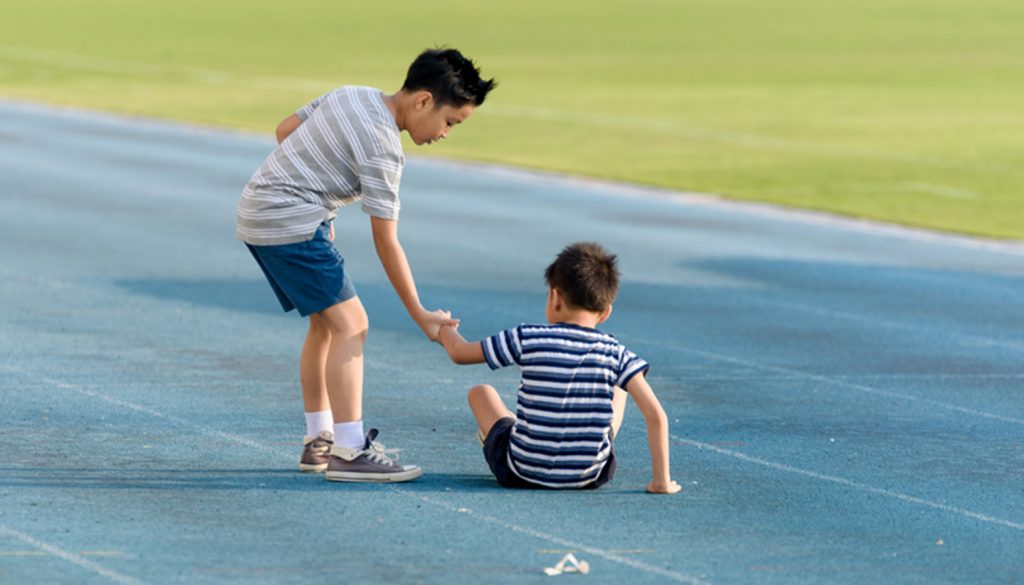There’s a lot of pressure on parents to make sure their kids are learning everything they’re supposed to be learning. We want to be sure that they’re hitting all those developmental milestones. As they start school we do our best to be sure they’re performing academically. As they get older we want them to be independent and responsible, good planners and conscientious learners. These are all valuable pursuits to be sure. But when I think of what my parents most wanted me to learn, and then what I wanted to teach my own kids, more than anything it was compassion.
One of the beautiful things about teaching compassion to our kids is that it’s actually really simple. You’re already doing it. Each time you respond to your children when they’re in need, you’re modeling compassion. First as an infant, when they cry you comfort them. They have a need and that need gets met. Then as a toddler when their world starts to get more complicated, you teach them compassion by noticing when they’re overwhelmed and helping them to manage their emotions. You also teach it by setting limits: no hitting or hurting allowed. They begin to learn that they are not the only people, that other people and living things can experience harm. They begin to learn that others have needs of their own.
Compassion is more than just being nice. It’s about justice. It recognizes that every person has human dignity and each person has rights. We show compassion by how we treat others and how we allow others to be treated, even when they are not at their best. I asked friends what they’ve done to teach their kids compassion and got some beautiful responses. One young mother shared what her parents did: “They taught us compassion by modeling it with one another, us, and others. Teaching my new son compassion is important to me because it is a fundamental building block of humanity.” Many of them shared that the most important thing they do is to set an example of compassion at home and out in the wider world.
- Pet therapy as a family in a nursing home has been a huge gift to us. I dare say more than we give.
- My parents volunteered. We helped and were involved in Scouting with its focus on service.
- When I had kids, we looked for age-appropriate ways to continue to serve, and we read books and more books about good-deed doers.
- I think a lot of it is frequently asking, “How do you think that person feels?”
- When it comes to our family charitable giving, we invite our children to talk about and choose who and what they want to give our time and money to. That helps them be part of the conversation and they have some stake in our family’s giving.
- We occasionally volunteer at the Ronald McDonald house but have found it more powerful to practice paying it forward. We may not have much, but have much more than many ... so now my kids ask to provide for the local homeless.
- Kids who are treated with compassion learn it. Kids who see the adults they love and respect showing compassion want to emulate it. As a youth minister one of my favorite things to see was when parents would support their kid’s efforts at compassion, joining them in service or backing up a project they’d gotten involved in.
Compassion is one of the ways we show the young people in our lives that what we say we believe is real and true. It says that we’re willing to overcome inconvenience and discomfort, to risk embarrassment and even rejection to put it into action. It’s authenticity catching fire and blazing up to warm all those around.

